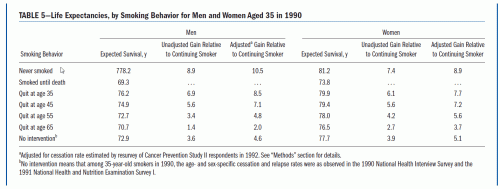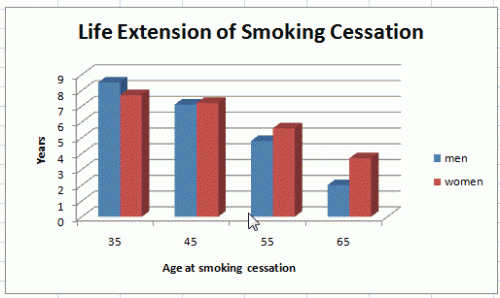My 11 year old son posed this question to me last week after a group visited his school and discussed the dangers of smoking. They were of course seeking to discourage smoking initiation. We discussed some of what he retained from this session, some correct, some wrong. I could tell the real question lurked. He then asked me this:
If Pop Pop had stopped smoking would I have met him?
Pop Pop was my father in law, who was a lifelong smoker and who died about 3 months before my son was born. My wife talks about her father often with the kids (the older ones are 16 and 14), and she usually doesn’t miss the opportunity to reinforce the dangers of smoking cigarettes.
11 year old’s like direct answers, so I told him that if his Pop Pop had stopped smoking before he got sick (around a decade before his death) then he probably would have met him.
A paper I published around a decade ago in the American Journal of Public Health, Benefits of Smoking Cessation for Longevity provides the essence for my answer; Table 5 denominates the benefits of smoking cessation by a given age in terms of life years gained as compared to continuing to smoke:
Note, the expected survival of never smokers should be 78.2 (for men) in the table, as compared to that of 69.3 for those who smoked until death (a typo, Methuselah was not a subject). The benefits of cessation for longevity are notable, and we found benefits even for smokers who stopped at age 65 (contingent upon their not already being sick when they quit, which is actually the primary reason that older smokers quit). The figure below summarizes the life extension gained due to smoking cessation at a given age (35, 45, 55 and 65), contingent upon surviving to that age.
There are a lot of things going on in the model that produced these results; I will amplify them over the next few days.
Donald H. Taylor, Jr, Vic Hasselblad, Jane Henley, Michael J. Thun, Frank A. Sloan. Benefits of Smoking Cessation for Longevity. American Journal of Public Health 2002;92(6):990-996.



